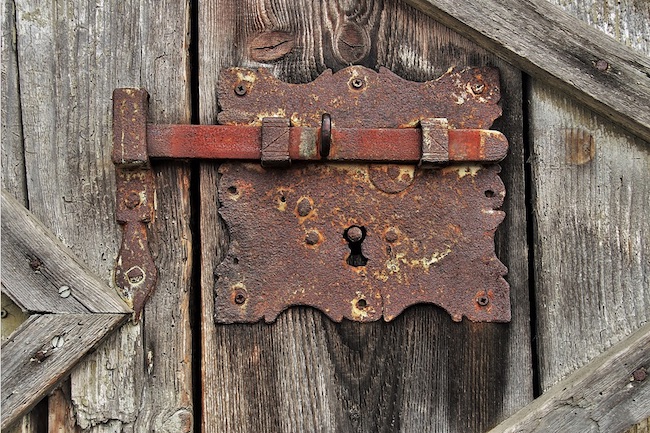WHEN GOD CLOSES THE DOOR AND SHUTS THE WINDOWS by Brad Gray for Core Christianity
Perhaps the harshest word we ever hear growing up is also one of the shortest: “No.” “No” is a small word that packs an enormous amount of power. It has the ability to both prevent and protect. Growing up, we almost singularly see the prevention side of this command, seeing “no” as merely a barrier hemming us in, but in fact, “no” is more like a gateway to better living. “No, do not touch that electrical outlet.” “No, do not touch that hot stove.” “No, do not play in the middle of the street,” etc. Youthful ignorance and curiosity sometimes see only the prevention, not the protection in those words.
We often do the same with God. When the Heavenly Father says no to us, we often react like a toddler throwing a tantrum. What’s your reaction when God says no? What happens when God closes a door and denies your seemingly good intentions? Do you still see the protection and preservation of His hand in that moment? Or do you see it as another instance of Him preventing you from enjoying life and fulfilling a dream?
At the end of King David’s life, he expresses a desire to build a house for the Lord. “See now, I dwell in a house of cedar, but the ark of God dwells in a tent” (2 Sam. 7:2; 1 Chron. 17:1). A passion arises in David to construct a temple for Jehovah — not for his own renown but for the worship, honor, and glory of the almighty God that had sustained him throughout his life. It’s a good desire, and the prophet Nathan even confirms his aspirations, saying, “Go, do all that is in your heart, for the LORD is with you” (2 Sam. 7:3; 1 Chron. 17:2). God’s will is seemingly clear: David would erect a house of the Lord in which generation after generation could extol the God who had delivered them and now preserves them.
It’s natural for us to conclude that God would not only recognize such an impulse but that this impulse would also be commended and action allowed. But the Lord’s plans were different for David. God denied him. God said no. “Thus says the LORD: It is not you who will build me a house to dwell in” (1 Chron. 17:4). The good intention in David’s heart wasn’t to be. It wasn’t God’s will for David to build the temple; rather, David prepared the way for the temple. We see this at the beginning of 1 Chronicles 22, where David begins stockpiling materials and resources for the promised construction of God’s house — the house he would never get to see (1 Chron. 22:2-5). He then commissions his son Solomon to “arise and work” (1 Chron. 22:16), for he was the one who should see the glory of the Lord’s house. The blueprint was there, the plans were made, the materials were collected, but the building wouldn’t be realized in David’s day. This must have been perplexing for David. The man after God’s own heart would never get to walk in God’s house.




